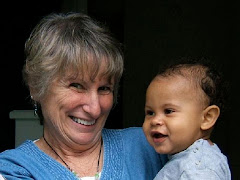Wednesday, June 6, 2012
To Medicate or Not to Medicate...
that is a question that many parents and professionals struggle with when working with children who have challenging behaviors, their families and, let's face it, the many systems they come in contact with. I realize that for many, it is not an easy question to answer. Unfortunately, mental health practitioners and even the courts (in cases where children are a part of the social services system), are almost backed into a corner to say yes, let's at least try medication. And the age of children who are put on medication is younger and younger. And this is probably particularly true for children who are in "the system". A young child, age 4 who is "all over the place" in preschool, has difficulty keeping her hands to herself and at times has been know to be aggressive with other children, will be put on medication to help her be "more manageable" for a foster parent and the preschool. A nine year old boy, also in "the system" was said by the evaluating psychologist: that his behavior can is now able to be managed thanks to several medications that appear to keep him in a drowsy state all day and thereby dull his behavioral and emotional responsiveness to the extent that he is not able to act out even if he wanted to...in time, however, the evaluator states "these medications will require adjustments in his pre-teen years or earlier"...and then "he may not be as pliable as he is now."
Subscribe to:
Post Comments (Atom)



I am by no means a professional or expert on this matter, but I do belive children are over medicated. I recently worked in an after school program for fifth graders and over half of the children were on some type of medication. How did it come to be that so many children need medicine to control their behavior? When do they have to take responsibility for their actions and learn some self control? Some of these children would use their medication as an excuse and tell me that they could not sit down and be still because they forgot to take their medication.
ReplyDeleteThere are definatly some children who need medication but more don't. I feel that some parents think it's easier to medicate than take the time to parent. Sure, some children are more rambunctious than others. Let's take the time to steer their energy in to positive activities instead of suppressing them and destroying their spirit..
Very good point we spend so much time trying to change children's behaviors...first by power and control and then by consequences...we don't look at what the behavior is communicating. When power and control (threats) don't work, we go to points or stars, or whatever...when that doesn't work we go for the medication. If a child is unable to sit still for long periods of time, it would seem appropriate to give that child some breaks where he can get up and move. If a child cannot finish 20 questions in class...break it up into 5 questions or 10. If a child gets angry very easily, find out what is stressing him out.
Delete